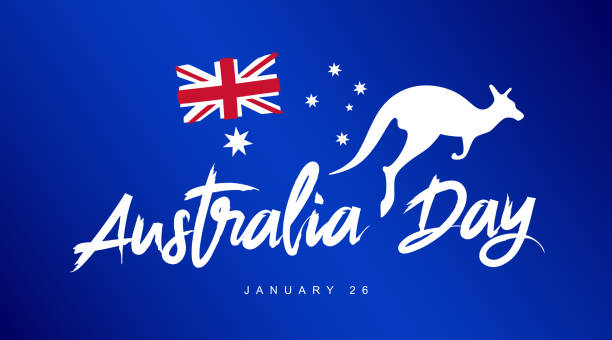Australia Day, celebrated annually on January 26th, commemorates the arrival of the First Fleet in Sydney Cove in 1788. However, while this date marks the beginning of British colonization, it also signifies the start of dispossession and suffering for Aboriginal Australians. This fundamental contradiction has sparked a fierce and increasingly divisive culture war that continues to strain the fabric of Australian society.
A Nation Divided: The Two Sides of the Debate
The debate surrounding Australia Day is far from nuanced. It is characterized by strong emotions and deeply held beliefs, making genuine dialogue difficult. On one side, there are those who celebrate January 26th as a national holiday, a day to commemorate Australia’s history and celebrate its national identity. They view calls to change the date as an attack on national pride and a rejection of Australian heritage. For this group, the date is a significant milestone regardless of its negative connotations for Indigenous Australians.
Conversely, a growing number of Australians, including many Indigenous people and their allies, argue that January 26th is a day of mourning and protest. They see it as a reminder of the violent dispossession, massacres, and ongoing systemic injustices suffered by Aboriginal and Torres Strait Islander peoples since European colonization. For them, celebrating on this date is deeply offensive and represents a continued erasure of Indigenous history and culture. They advocate for changing the date to one that is more inclusive and representative of all Australians.
Arguments for Maintaining January 26th:
- Tradition and Heritage: Many believe that changing the date would erase an important part of Australia’s history and break with long-standing tradition.
- Economic Impact: The economic implications of changing the date, including disruptions to tourism and businesses, are frequently cited as reasons to maintain the status quo.
- National Unity: Some argue that changing the date would further divide the nation rather than foster unity and reconciliation.
- Practical Difficulties: The logistical challenges of changing a nationally recognized date are significant and complex.
Arguments for Changing the Date:
- Recognition of Indigenous Suffering: This is the central argument. Celebrating on January 26th ignores and minimizes the pain and suffering inflicted upon Indigenous Australians.
- Reconciliation and Healing: Changing the date is seen as a crucial step toward reconciliation and healing the deep wounds of colonization.
- Inclusive National Identity: A new date would allow for a more inclusive celebration that recognizes the contributions of all Australians, including Indigenous peoples.
- Moral Imperative: Many argue that it is a moral imperative to acknowledge past injustices and choose a date that does not cause further pain.
The Escalation of the Culture War
The debate surrounding Australia Day has become increasingly polarized in recent years. Social media has amplified the voices of both sides, contributing to a climate of animosity and intolerance. Public demonstrations, both in support of and against the current date, have become more frequent and, in some cases, confrontational. The emotional intensity of the debate often overshadows rational discussion and compromise.
The media’s role in shaping public opinion is also significant. News coverage often reflects the polarized nature of the debate, reinforcing existing divisions rather than fostering understanding. The framing of the issue—as a clash between patriotism and political correctness, for instance—further exacerbates tensions.
Beyond the Binary: Seeking Common Ground
While the debate often presents a binary choice—keep the date or change it—the reality is far more complex. Many Australians are seeking ways to acknowledge both the historical significance of January 26th and the need for reconciliation with Indigenous Australians. The focus should be on finding common ground rather than deepening existing divisions.
Some potential solutions being discussed include:
- Establishing a new national day of celebration: This would allow for a day to celebrate Australian identity and history without negating the pain associated with January 26th.
- Creating a more inclusive commemoration of January 26th: This might involve incorporating Indigenous perspectives and narratives into the celebrations, acknowledging the complexities of the day.
- Focusing on reconciliation and healing: Prioritizing initiatives that address the ongoing injustices faced by Indigenous Australians can create a more inclusive and equitable society.
The Path Forward: Reconciliation, Not Division
The debate surrounding Australia Day reflects a much larger conversation about national identity, reconciliation, and the ongoing struggle for justice for Indigenous Australians. It is a conversation that needs to move beyond the current climate of division and animosity. Finding a way to acknowledge the past, celebrate the present, and build a more inclusive future for all Australians requires empathy, understanding, and a commitment to genuine dialogue. The challenge lies in fostering a national conversation that prioritizes reconciliation and healing rather than allowing the culture war to further divide the nation.
Ultimately, resolving this issue requires a willingness from all sides to listen, learn, and compromise. Only then can Australia truly move forward, creating a national narrative that reflects the diverse experiences and perspectives of all its people.
